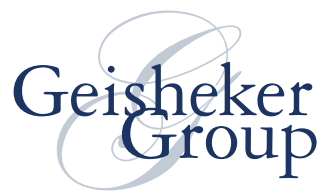The Rise of the Fractional CMO
In today’s fast-paced and ever-changing business landscape, companies of all sizes realize the value of working with marketing experts on a project or temporary basis rather than hiring a full-time Chief Marketing Officer (CMO). This trend of bringing on a “fractional CMO” provides tremendous advantages, making it an increasingly popular staffing strategy for leadership teams.
As the marketing function continues to grow more technical and complex, the costs and risks associated with hiring a full-time staff CMO have also escalated. According to executive search firm Spencer Stuart, the average compensation for Fortune 500 CMOs is $4 million per year. Investing in salary, benefits, bonuses, stock options, and other perks is a considerable investment for a senior executive – especially one who may or may not work out long-term.
In contrast, fractional CMOs allow companies to tap into top-tier marketing expertise on a budget they can afford. They offer the experience and capabilities of a CMO without the extensive costs and politics involved with hiring, managing, and potentially firing full-time C-level talent.
Here’s a closer look at some of the key advantages of working with a fractional marketing executive versus bringing on a full-time CMO.
A Fractional CMO Offers Cost Savings
Rather than paying an annual multi-million dollar salary for a CMO, a fractional CMO professional allows you to pay only for the specific services and hours you need. This converts the high fixed costs of a full-time executive to flexible variable costs that scale up and down based on your requirements and financial resources. Whether you need fractional CMO services for 10, 20, or 40 hours per week, you aren’t locked into an expensive long-term contract.
Some projects may require several months of intensive marketing leadership, while others may only need a few weeks or days. A fractional CMO provides agility and cost savings by right-sizing your marketing leadership for the projects at hand. You avoid paying for idle time when marketing needs to decrease.
Marketing Objectivity
Full-time CMOs join companies with their own ideas, approaches, and agendas – for better or worse. Even if they have the best intentions, their experience and perspectives are limited to what they’ve been exposed to in past roles.
In contrast, fractional CMOs can offer a level of objectivity and impartiality that is hard to get from a traditional executive. Since they work with numerous clients across various industries, fractional CMOs have seen a wider variety of scenarios, challenges, and successes. This equips them to evaluate your marketing program more objectively and recommend what will work best for your unique situation.
Specialization
No CMO can be an expert in every aspect of marketing today. The field has become so vast and technical that smart leaders surround themselves with specialists across areas like search marketing, social media, digital analytics, branding, videography and more.
Fractional marketing executives often focus on one or two areas of specialty, allowing you to leverage deep expertise that most full-time CMOs lack. For example, you can bring on fractional support precisely for services like SEO audits, persona development or building MarTech stacks. This specialty model gives you access to leading experts that you likely couldn’t afford full-time.
Flexibility
Hiring a full-time CMO requires a long-term commitment to a salary and benefits package regardless of whether your needs change. What happens if you want to scale back marketing temporarily or shift directions to pursue a new opportunity? With a fractional CMO, you retain the flexibility to adjust your marketing leadership on your timeline.
You can also supplement an existing marketing team with fractional support in needed roles. For example, a fractional CMO can step in as an interim director while you search for a full-time replacement. Or you may realize you only need a dedicated social media manager for 20 hours per week versus hiring one full-time. The model accommodates your changing requirements.
No Learning Curve
Bringing a new full-time CMO on board often comes with significant ramp-up time before they can deliver results. From learning your business, customers, and products to establishing authority and relationships internally, it takes time for a CMO to get up to speed.
Fractional CMOs get onboard quickly and hit the ground running from day one. Because specialized independent CMOs work with various companies, they are accustomed to rapidly assessing the situation, identifying opportunities, and making an impact. The seasoned experience they bring eliminates the learning curve so you see faster results.
Diversity of Experience
Throughout a full-time CMO’s career, they accumulate knowledge and perspective from a small number of companies where they have been employed long-term. This can make it challenging to introduce new ways of thinking.
On the other hand, fractional CMOs gain exposure to diverse industries, company sizes, cultures, and marketing strategies through shorter engagements with multiple clients. This wealth of varied experience gives them unique insight to see opportunities and solutions that might be missed by a CMO entrenched in how things have always been done.
Accountability
Measuring marketing’s impact and ROI is notoriously difficult, making full-time CMOs hard to hold fully accountable. If a campaign or initiative fails to produce results, was it the CMO’s fault or were other factors to blame? With ambiguity over what success looks like, full-time CMOs often maintain job security even when progress stalls.
Fractional CMOs are more accountable for delivering concrete marketing outcomes and moving key metrics because their engagements are defined projects versus open-ended contracts. With fractional support, you can set clear objectives, benchmarks, and requirements upfront to ensure the marketing programs accomplish what you expect.
No Politics or Power Struggles
Hiring a high-profile CMO inevitably shifts power dynamics and can disrupt the culture, as current team members adjust to the new authority figure. Conflicting agendas, politics, and infighting are not uncommon risks.
Fractional CMOs have a much lower chance of internal power struggles. Their temporary role is to influence and persuade through expertise versus exerting hierarchical control. And their outsider status stays objective – they aren’t focused on climbing the corporate ladder or building fiefdoms.
Strategic Impact
For fractional CMOs, coming in on a temporary basis provides perspective to identify growth opportunities and innovations that insiders can easily overlook. The best fractional CMOs act as a strategic partner and advisor – not just a tactical doer. Their experience brings an objective eye and fresh thinking to transform how marketing gets done and where it can have the most impact.
Summary
The marketing challenges and opportunities businesses face today require a flexible, agile approach. While full-time CMOs still have a place in larger enterprises, the fractional model offers tremendous advantages for a wide range of companies looking to scale their marketing function strategically and efficiently. Tapping fractional marketing talent can drive sustained growth without the burdens that often accompany traditional executive hires.
Need SaaS Fractional CMO Services? We can help!
Peter Geisheker, CEO of The Geisheker Group, provides SaaS fractional CMO services. His area of marketing expertise is B2B and SaaS. Peter has over 30 years of marketing experience.
Click the Contact Us button below to schedule a time for us to discuss your business needs and objectives and how we may be able to help.


